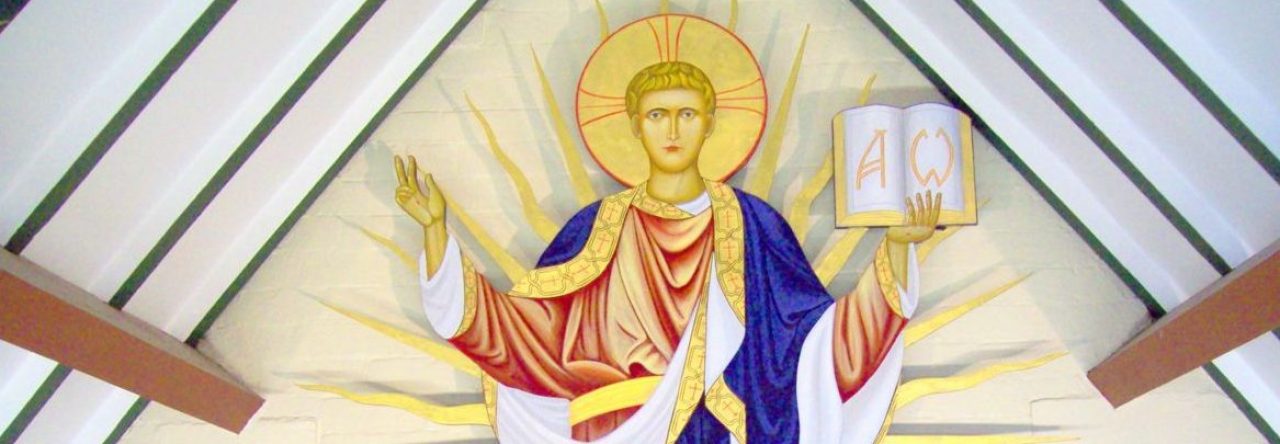Dear friends,
A bit of Scripture for you!
1 Corinthians 15:3-8 New Revised Standard Version
3 For I handed on to you as of first importance what I in turn had received: that Christ died for our sins in accordance with the scriptures, 4 and that he was buried, and that he was raised on the third day in accordance with the scriptures, 5 and that he appeared to Cephas*, then to the twelve. 6 Then he appeared to more than five hundred brothers and sisters[a] at one time, most of whom are still alive, though some have died.[b] 7 Then he appeared to James, then to all the apostles. 8 Last of all, as to one untimely born, he appeared also to me.
*Peter
Chapter 15 of Saint Paul’s First Letter to the Church in Corinth used to be read in its entirety at every Church of England funeral. It was read as the congregation gathered around the grave. I remember having to translate it into English in the dim-and-distant past when I struggled with New Testament Greek. (Trying to learn another language always played to my weaknesses!)
The reason why I have started this Window with S. Paul is to do with the nature of faith and the discipline of being a practising Christian. Father Eric Mascall was a lecturer at King’s College, London and I was fortunate to sit at his feet. He was a philosopher and theologian and was definitely in the catholic wing of the CofE. He also wrote a number of books on religious themes. (Curiously, “Mr. S.” my local barber, had a large, framed, photograph of Eric Mascall (and other clergy) on the wall of the shop. It is now on the vicarage landing.)
This is what he wrote about the attitude of churchgoers to the place of sacraments – particularly the receiving of the Lord’s Body and Blood in Holy Communion.
“The Church has often failed by not emphasising the part which (sacraments) play in the personal sanctification of the Christian. That is, looking upon the sanctification (making holy) as brought about by the stimulation of devout feelings in the recipient and in forgetting the connection between the sacrament and union in Christ with his Church… Now if it were true that what enables us to receive Christ into our souls is the strength of our feelings of devotion towards him, it would follow that sacraments are valuable only in so far as they produce those feelings.” (Slighty adapted.)
In other words, “I didn’t get anything out of that service.” means precisely that. He later writes,
“So we look on the Mass as good for those to whom it appeals, and Evensong or a good novel are legitimate substitutes.”
The point he is making is that many people seem to rely on feelings to decide whether something is a good thing or not. The Mass is only ok if it “floats your boat”. (“To be sure, he says a lovely mass, Father.” say the nuns in Father Ted.) Faith in Christ depends on the feelings reading the Bible, going to church, singing a hymn etc. produce. Now the reason I started this complex Window with the quotation from Saint Paul is the fact that he is concerned with facts, not feelings. This happened to Christ, and this and this. These are verifiable truths. Life-changing events. The Apostles witnessed the Lord’s death and resurrection. Paul shared in that witness, though only at the tail-end. In addition, all these events are verified, not in the New Testament but in the Old. The New Testament didn’t exist, in effect, for over three hundred years. (What became the NT did but as separate writings which were referred to as the “memoirs of the Apostles and letters”) It was to the Old Testament that Paul and the Apostles appealed. Similarly, “according to the Scriptures” in the Apostles’ Creed is, again, a reference to the prophesies in the Old Testament, not to the New Testament writings.
The question is this. As Holy Week and Easter draw near, do we approach that most holy time as a feast of warm feelings (or not), pretty flowers, music and drama – or are we caught up in the setting forth of events which happened and which have eternal significance? We live in a very subjective world. Things are only valid if they make us feel one way or another. Dave Allan’s, “May your God go with you.” makes clear that God is the invention of the individual. In other words, not God at all.
I pray that we may all approach Holy Week, Easter, Sacraments, Faith as having an objectivity which is not dependent on the way we feel at the moment. The Gospel is set before us and it is up to us to respond. Jesus said, “Do this.” when he told bread and wine and turned them in to His Body and Blood for our ongoing sanctification – being made holy so that we may enter the Holy of Holies which is heaven itself.
So – Holy Week. Mass will be offered every evening at 1900 (7pm). The celebration of the Lord’s Passion will take place on Good Friday at the same time. The most important celebration, the Easter Vigil, will take place at 2000 (8pm) on Holy Saturday. It is at this mass that we renew the fact of our baptism and the fact that we are people who form the Body of Christ, the Church, in this place. Be there – or, like Peter, deny THE LORD!
Every blessing during the rest of Lent and the GLORIOUS FIFTY DAYS OF EASTER
